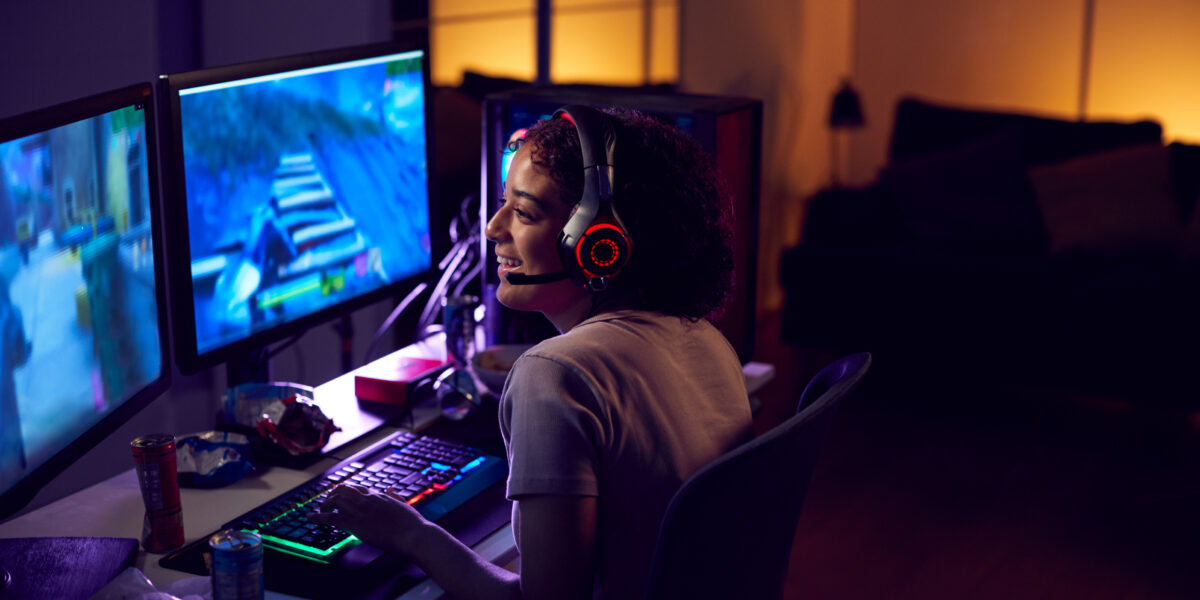How Feminine are E-Sports?

Anyone still saying “footballers’ wives” when they really mean female football players should urgently work on their perception and vocabulary when it comes to gender equality in sports. Because achieving a fair balance between male and female protagonists and fans is not only an important and pressing issue in ball sports. Even in e-sports and e-gaming, there is still a great need for action regarding gender distribution. However, there are some countries where more efficient and faster work is being done to eliminate barriers to gender equality in sports.
For example, in South Korea and China, the situation regarding gender equality in e-sports is not so bad. In the Middle Kingdom, 46 percent of gamers are female. That’s 16 percent more than female e-sports fans. Here, the ratio in China is 30:70 in favor of a much larger male share.
Only in South Korea e-gaming is slightly more gender-equitable with 32 percent of female e-sports enthusiasts. In any case, both Asian countries are well above the global average of a meager 22 percent. In Germany, 20 percent of e-sports fans are female, slightly less than in France (23 percent) and Canada (25 percent). The e-sports fan scene is even less female in the United States (17 percent) (Source: Nielsen Esports Fan Insights 2018).
As diverse and unfair as the weighting between male and female e-sports fans in the markets surveyed by Nielsen (USA, UK, France, China, Japan, South Korea, and Canada) may be, the reasons why men and women are enthusiastic about gaming also seem to be divergent, at least in some respects. The notion that women are e-sports fans because they have the opportunity to watch cosplay events or participate in them themselves strongly smells of stereotype. In any case, both genders of fans agree that e-sports are primarily for entertainment.
But focusing solely on e-sports broadcasts is neither a women’s nor a men’s thing. Rather, some things run parallel to it, especially social media. Female e-sports fans are active on social networks during e-sports events 46 percent of the time, while only 38 percent of men dedicate themselves to social networks during that time. The balance is quite even when it comes to general surfing during e-sports games. The biggest gap between female and male e-sports fans arises when playing the same game that they are watching. Only 15 percent of women do this, while 27 percent of men do.
Female Fans = Female Gamers?
E-sports are becoming increasingly recognized and accepted by the masses. The more commonplace gaming becomes, the more normal the female desire to become not only a fan but also a gamer is viewed. After all, the market is huge. The Chinese market alone is expected to reach a value of nearly 15 billion US dollars this year.
However, female gamers are underrepresented and treated unfairly on a global scale. Worldwide, 43 percent of women who stream their gaming and create content are unpaid. In contrast, for men, it’s only 38 percent who receive no payment. The largest gap is found in the United States (47 percent of unpaid female versus 24 percent of unpaid male streaming gamers). Conversely, China shows the opposite gender gap. In the People’s Republic, it’s the male streaming gamers, with 22 versus 14 “female” percent, who create gaming content for free more often.
Even when it comes to gaming devices, women play differently. They primarily prefer smartphones for gaming, followed by PCs at 35 percent and consoles at 23 percent.
Beyond the Alps, it isn’t Fairer
But why look to the vastness of China when it’s also unequal right in our neighborhood? This is shown, at least, by the eSports survey conducted by the T-Mobile Austria subsidiary UPC. According to the data, the overall distribution of gamers is fairly balanced, with 53 percent male and 47 percent female gamers. However, when looking at the ratio of daily gamers, it becomes overwhelmingly male again at 67 versus 33 percent. Furthermore, only 5 percent of professional e-sports players in the Alpine Republic are female.
Natalie Denk, a games researcher at Danube University Krems and a passionate gamer herself, didn’t want to accept this anymore and promptly founded the League of Girls platform. With this format, especially female gamers can connect, exchange ideas, and improve through news, chats, and community interaction. Men are also welcome at League of Girls – not only as mentors for female gamers.